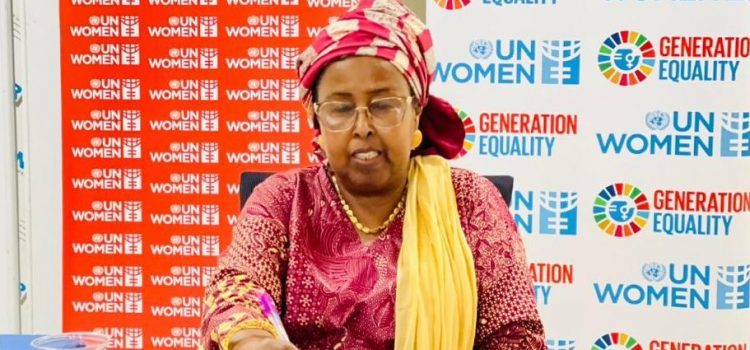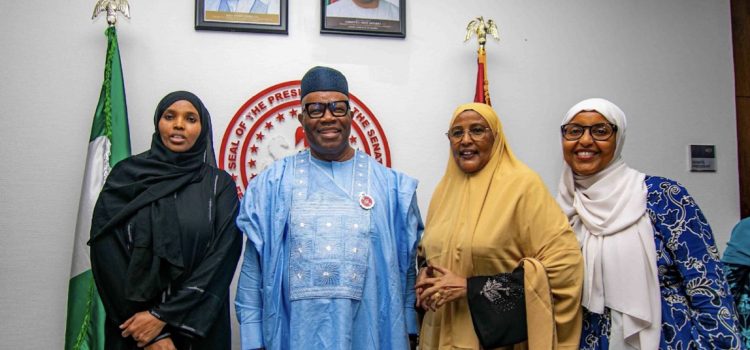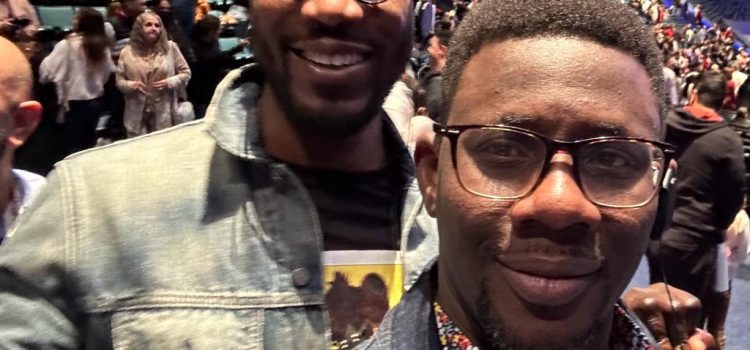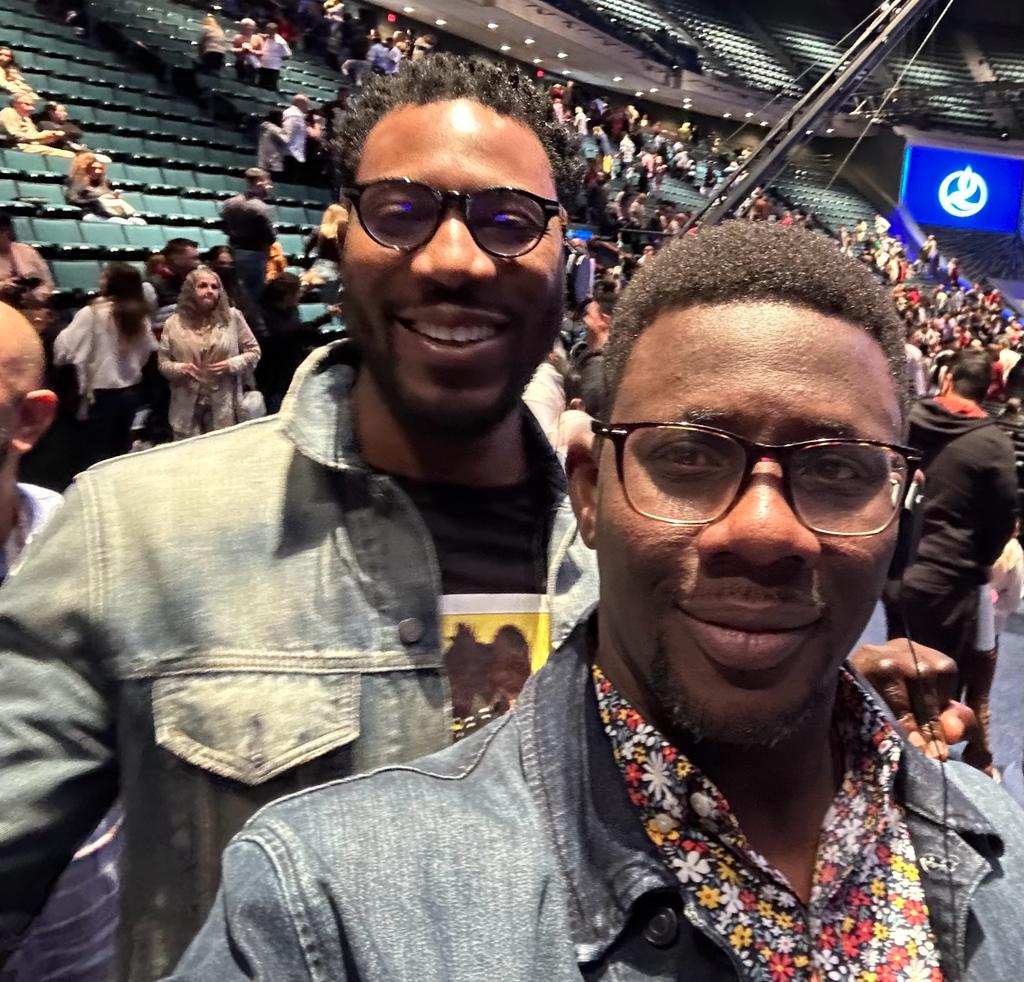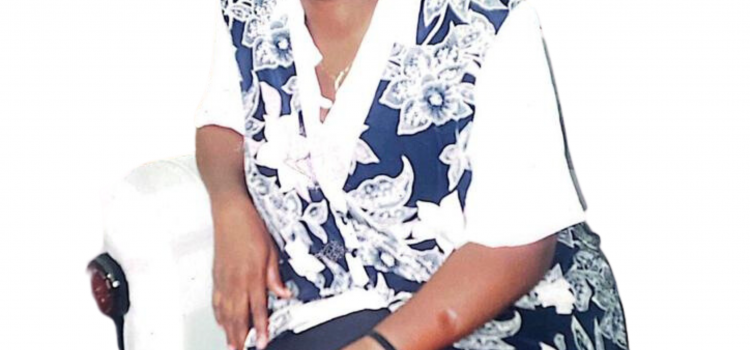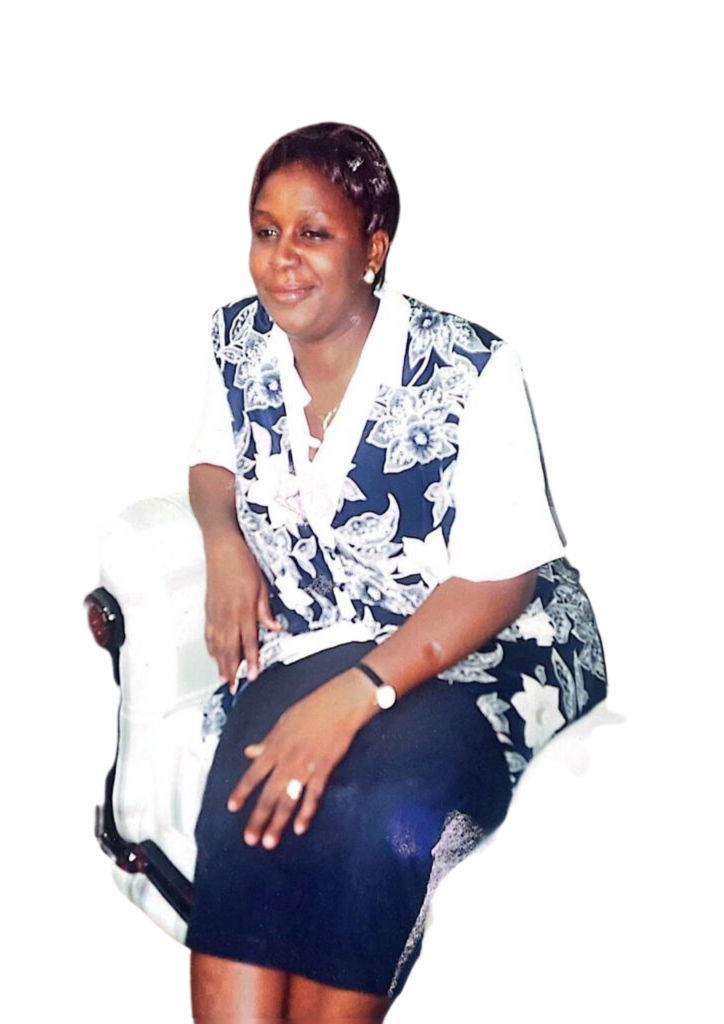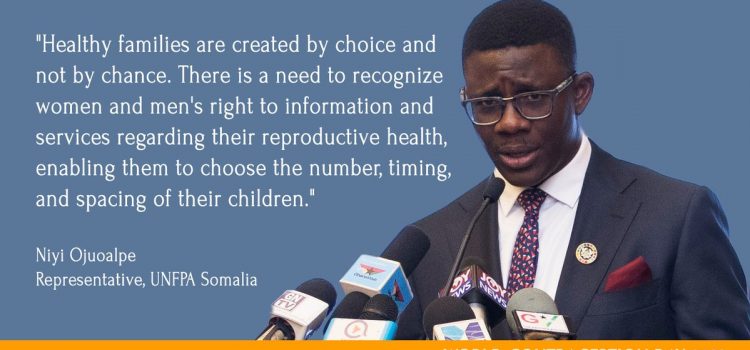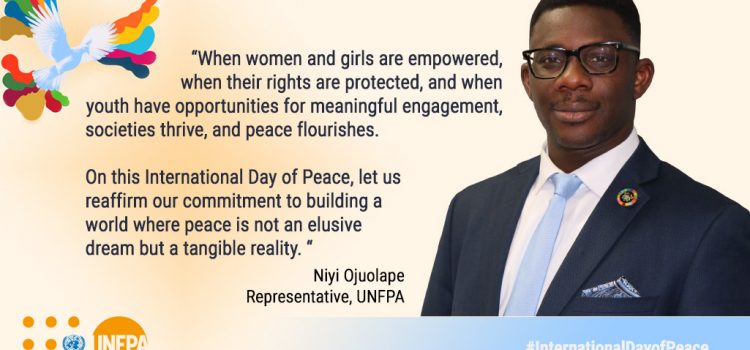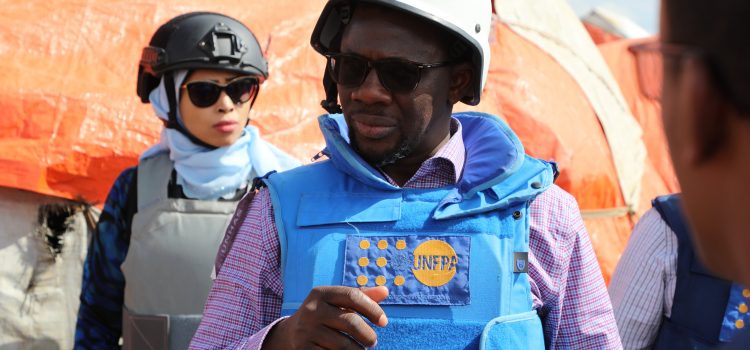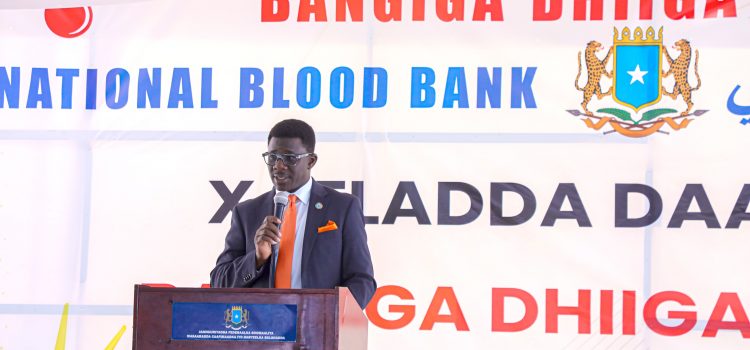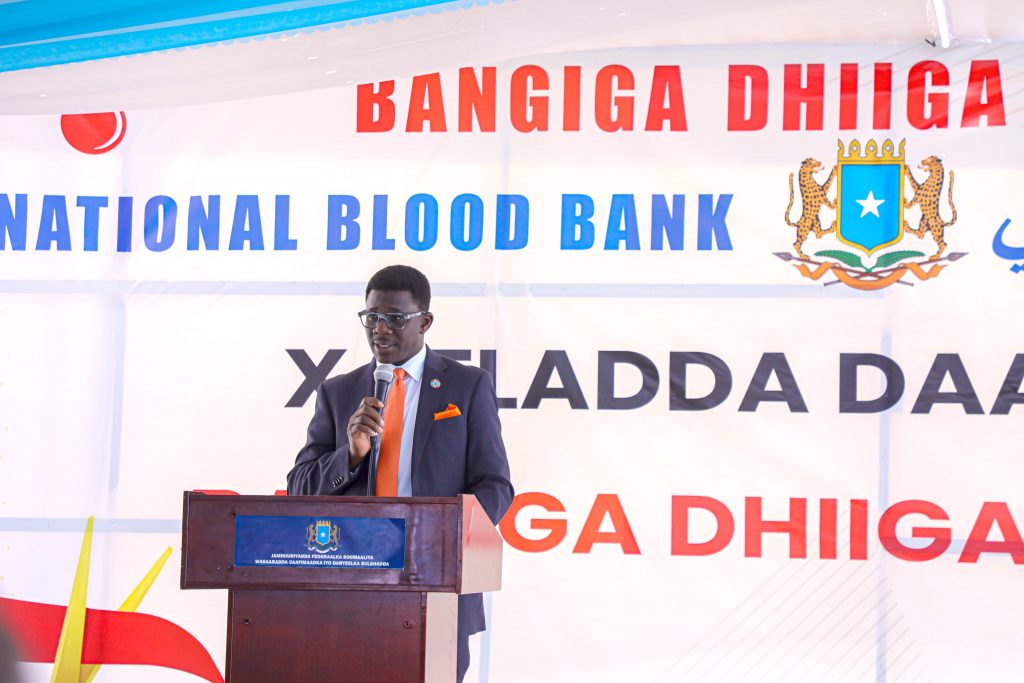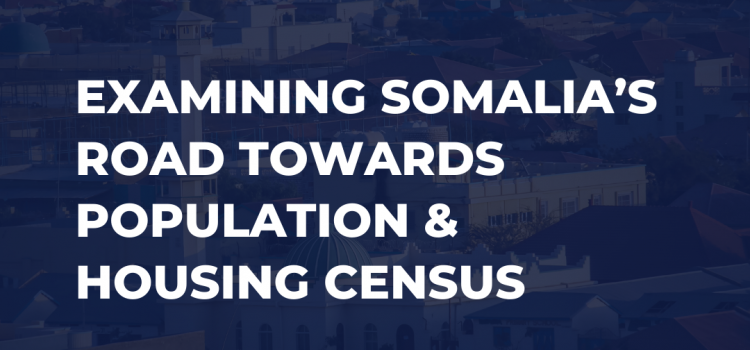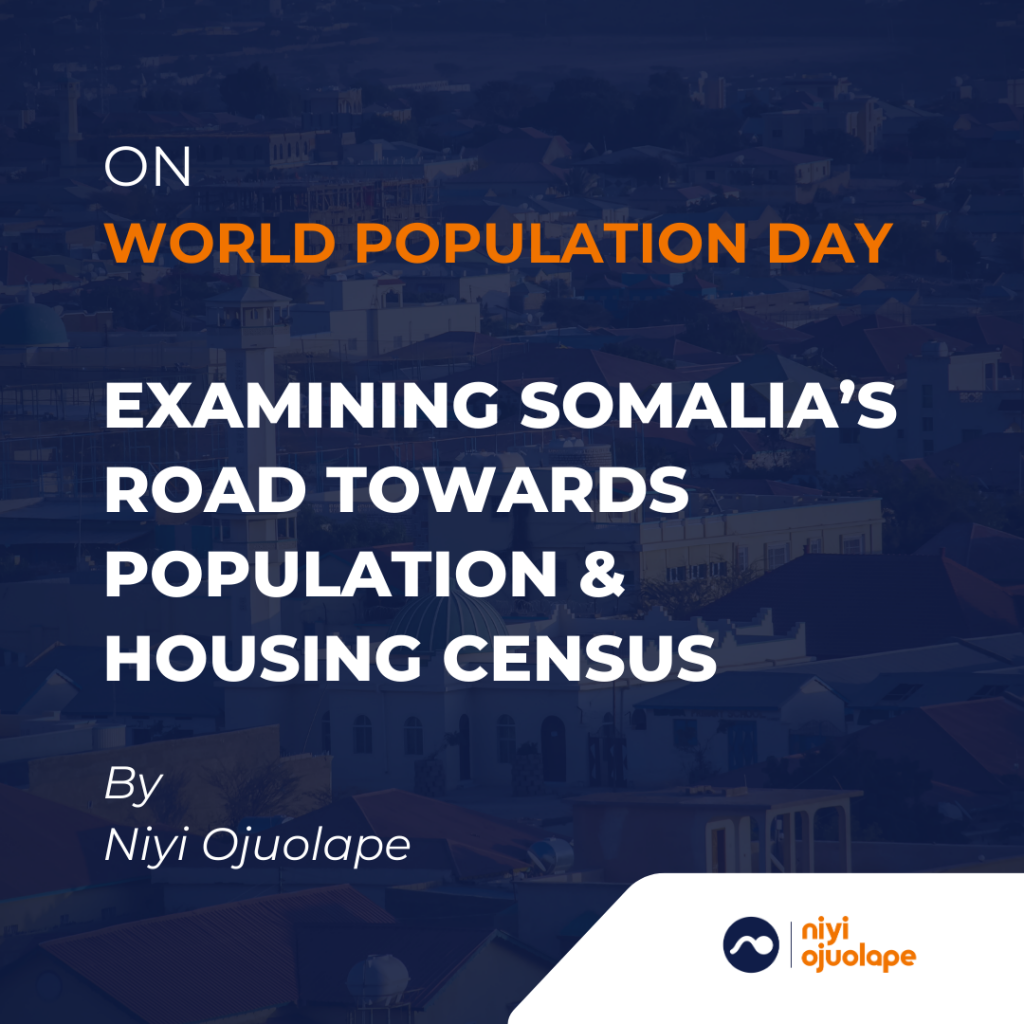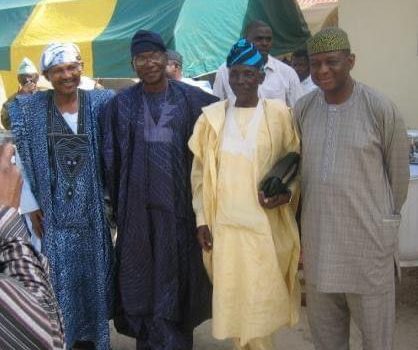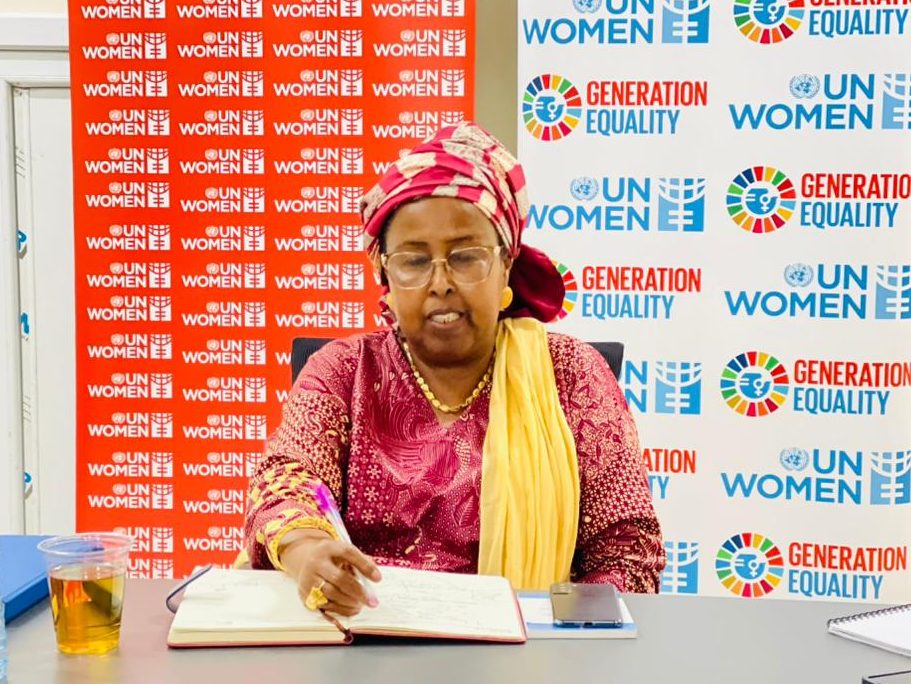
Today, we mourn the untimely departure of a remarkable leader, Minister Khadija Mohamed Diriye, a beacon of strength, compassion, and a tireless and outstanding advocate for women and human rights. Her sudden passing leaves a void that cannot be easily filled.
Minister Diriye’s commitment to the betterment of society was evident in every step she took. Her tenure as the Somali Minister for Women and Human Rights Development was marked by unwavering dedication, grace, and a deep sense of responsibility. She tirelessly championed the cause of equality, leaving an indelible mark on the path towards a more just and compassionate world.
Beyond the corridors of power, Minister Diriye touched the lives of many with her warmth and kindness. Her legacy extends far beyond the titles she held; it resides in the hearts of those who experienced her unwavering support and encouragement.
My personal interactions with Minister Diriye were a testament to her indomitable spirit. In my role as the UNFPA Country Representative in Somalia, she easily stood out as my first interlocutor with the Somali public, and a dynamic force advocating for the emancipation of women, gender equality, and empowerment. In our numerous meetings, her energy was infectious, and her passion for the cause radiated in every discussion. In those precious moments, she expressed heartfelt gratitude for the support provided by UNFPA in her unwavering pursuit of women’s rights and human development.

Minister Diriye’s genuine appreciation underscored the collaborative spirit that defined our working relationship. Her acknowledgment of the collective efforts served as a poignant reminder of the impact that sincere collaboration can have on advancing noble causes.
What remains etched in my memory is our last encounter, merely six days before her untimely departure. Despite her ailing health, Minister Diriye sought a meeting, and came to the compound. It was her first visit to our new office complex. Her unwavering dedication to the agenda she held dear was palpable. In the confines of my office, alongside esteemed colleagues from UNICEF and UN Women, she painted a vivid picture of her dreams and hopes for the empowerment of women. It was a poignant reminder of her resilience and unwavering commitment, even in the face of personal challenges. During her visit, Minister Diriye shared her thoughts, aspirations, and dreams with an enthusiasm that transcended the challenges of her failing health. Her determination to make every moment count, to advocate for women’s rights and the passage of the Sexual Offences Bill, was palpable. Despite knowing the uphill battle she faced, her spirit remained unyielding. In those precious hours, Minister Diriye exemplified resilience, strength, and an unrelenting commitment to the causes she held dear. As we bid farewell, let us not only mourn her passing but also celebrate the vibrancy of her spirit, a spirit that continued to shine brightly until her last moments with us.
As we remember Minister Khadija Mohamed Diriye, we must also acknowledge her unwavering commitment to the advancement of legislation that safeguarded the rights and well-being of all. Her passion extended to a significant piece of legislation, the Sexual Offences Bill, a testament to her dedication to the cause of justice.
Minister Diriye’s fervor for this bill was palpable. She envisioned a future where the rights of every individual, particularly in the face of sexual offences, were protected by law. It was under her watchful guidance and commitment that the first version of this bill took shape from the Ministry. Tragically, Minister Diriye’s journey ended a day before a significant milestone she eagerly anticipated. In our conversation last week, she was very hopeful, committed and determined that the Bill would go before the Cabinet for approval ‘next week’, and had planned to celebrate that milestone with us the following week. Despite the reluctance of myself and colleagues, she insisted that we must come together for an end of year party to celebrate the advances and achievements we have attained this year. Her dedication to ensuring the realisation of this legislative milestone serves as a poignant reminder of her tireless efforts and unwavering advocacy for justice.
In a touching conclusion to our last meeting which I earlier referenced, Minister Diriye, probably foreseeing the significance of the moments captured, insisted on taking several pictures. Her request to infuse action into the photos was symbolic of her desire for tangible progress. Little did we know that these captured moments would become cherished memories, a testament to her foresight and the vibrant spirit she brought to every endeavour.
As we pay tribute to Minister Khadija Mohamed Diriye, let us carry forward the torch of collaboration, appreciation, and action that she so passionately championed, ensuring that her aspirations for a more just and equal society are realized. Minister Khadija Mohamed Diriye’s legacy lives on in the pursuit of a better world that she so ardently championed.
Niyi Ojuolape is the UNFPA Resident Representative in Somalia
